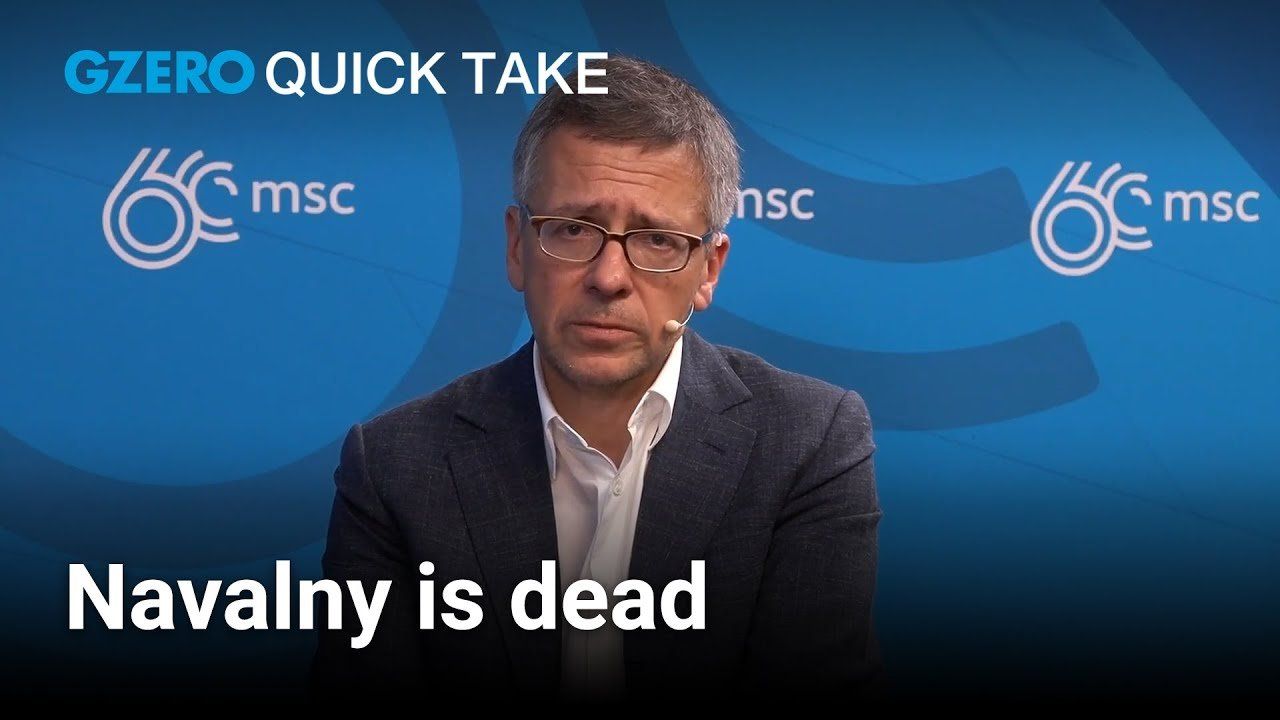Quick Take
Navalny's death is a message to the West

Navalny's death and the wider implication of Russia's impunity | Ian Bremmer | Quick Take

Ian Bremmer's Quick Take: Hi, everybody. Ian Bremmer here from the Munich Security Conference, just kicking off what is the most important security confab for NATO and the West every year. And the big news literally moments before the initial speeches for this conference, the announcement coming from Russia that Alexei Navalny had been imprisoned for years is now dead, looked fine yesterday, perfect health, when he was at a legal hearing today, suddenly died, supposedly of a stroke.
Putin, the Kremlin responsible, of course, and also a direct message. I think it's very clear to show the West to show the United States, to show NATO they can do what they want. They can act with impunity on their territory. They do not care if they are threatened. There was I remember after Biden met with Putin, this is back in 2021, and he said that it would be devastating. The consequences would be devastating for Russia if Navalny were to die in jail. Well, I mean, we've also said similar things to Putin about Russia invading Ukraine. And a couple of years on the Russian position, despite all of the economic damage they've taken, all of the military damage they've taken is that they will continue to engage in this war. They will continue to engage in human rights abuses. And it doesn't matter how the Americans or Europeans respond. The Russians will wait them out.
And that is the message that is being sent today. It's a very chilling message. I saw Vice President Harris and a number of European leaders all take to the stage, as well as Navalny's now widowed wife. All saying that this cannot be in vain, that there must be consequences. But ultimately, in an environment where rogue states feel like they have more ability to act on the global stage, Russia, Iran, North Korea, the so-called axis of resistance, terrorist actors, you will see more of this behavior. So the question is being put to the Munich Security Conference. Question is being put to NATO. Will you continue to work collectively? Will you take a stand against this sort of behavior? And Putin is watching that answer very, very carefully.
That's it for me. I'll talk to you all real soon.
For many in Iran, it’s a waiting game for how long Ayatollah Khamenei has left to live.
In a 30-minute call on Thursday, President Donald Trump reportedly told Ukrainian President Volodymyr Zelensky he wants to end the war with Russia as soon as possible — aiming for a deal by summer, but ideally within weeks.
Former British ambassador to the U.S. Peter Mandelson leaves his residence after he was released following his arrest by London police on Monday on suspicion of misconduct in public office, following the release of U.S. Justice Department files linked to the late financier and convicted sex offender Jeffrey Epstein, in London, Britain, February 26, 2026.
The ghost of Jeffrey Epstein continues to haunt the world.
Think you know what's going on around the world? Here's your chance to prove it.